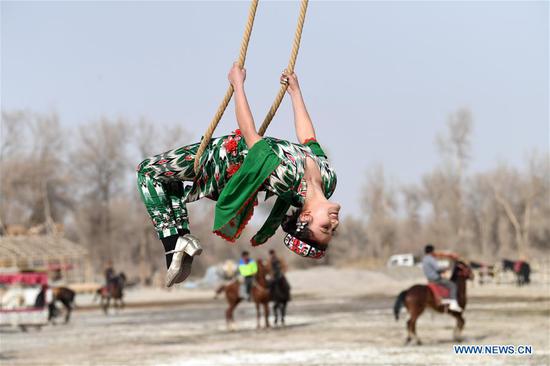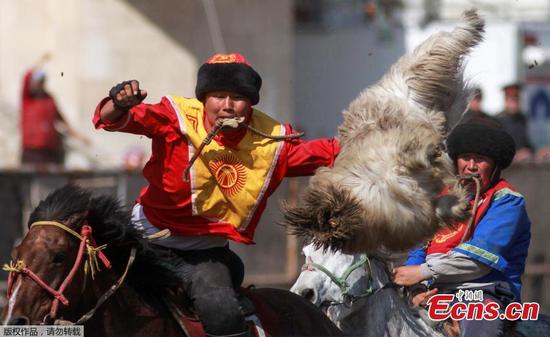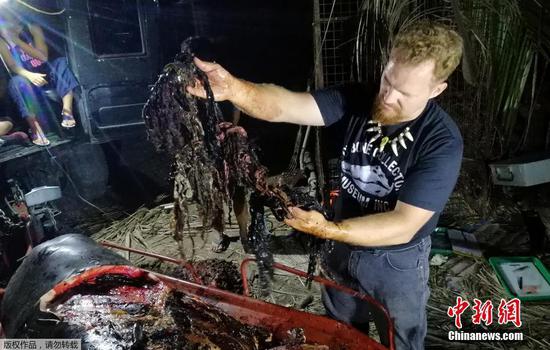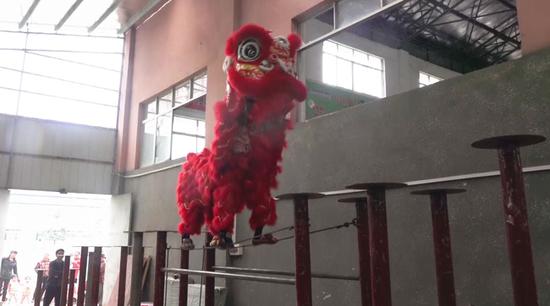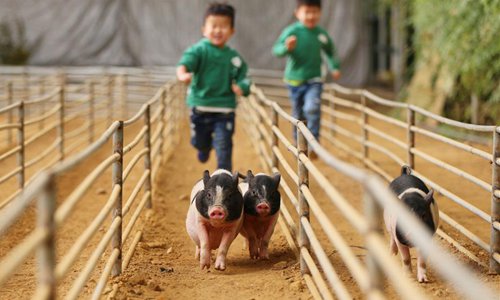
Two children chase pigs at Jiangjun agricultural ecological park in Dalian, northeast China's Liaoning Province, Dec. 9, 2017. (Photo/Xinhua)
The hog supply in China remains unbalanced and will take a long time to recover, industry insiders said on Wednesday after authorities announced to lift the ban on the transporting hogs in 21 out of 28 mainland provinces that have experienced an outbreak of African Swine Fever (ASF).
More than 90 percent of the outbreak zones in the 21 provinces have been cleared of the epidemic, after the nation took effective measures, Yu Kangzhen, vice minister of Agriculture and Rural Affairs, told the press on Tuesday.
So far, 113 cases of ASF have been found in 28 provinces, said Yu.
Feng Yonghui, chief analyst at the hog market information provider soozhu.com, told the Global Times on Wednesday that the ASF outbreak has caused an extreme shortage of hogs in some markets, especially in northern and northeastern China.
Another analyst specializing in hog market said the reduction in the supply of hogs has boosted pork prices, which are expected to continue to rise.
While the ASF is being under control the causes of the outbreak still exist and better monitoring at slaughter houses will be the key to controlling future outbreak, Yu said.
He asked local animal husbandry and veterinary departments to strengthen their efforts in monitoring the pig slaughtering process and strictly implement prevention measures.
China reported its first ASF case in August 2018 in Northeast China's Liaoning Province. Succeeding outbreaks were reported in other provinces and regions.
ASF is a severe viral disease affecting domestic and wild pigs which can be spread by live or dead pig and pork products, but the ASF virus is harmless to human, the Xinhua News Agency reported.































